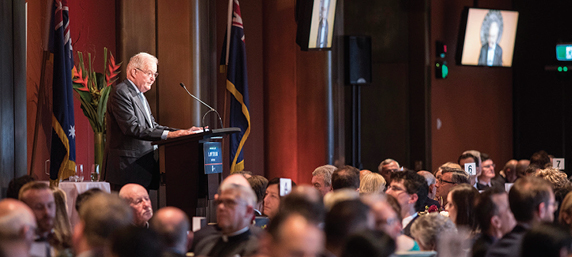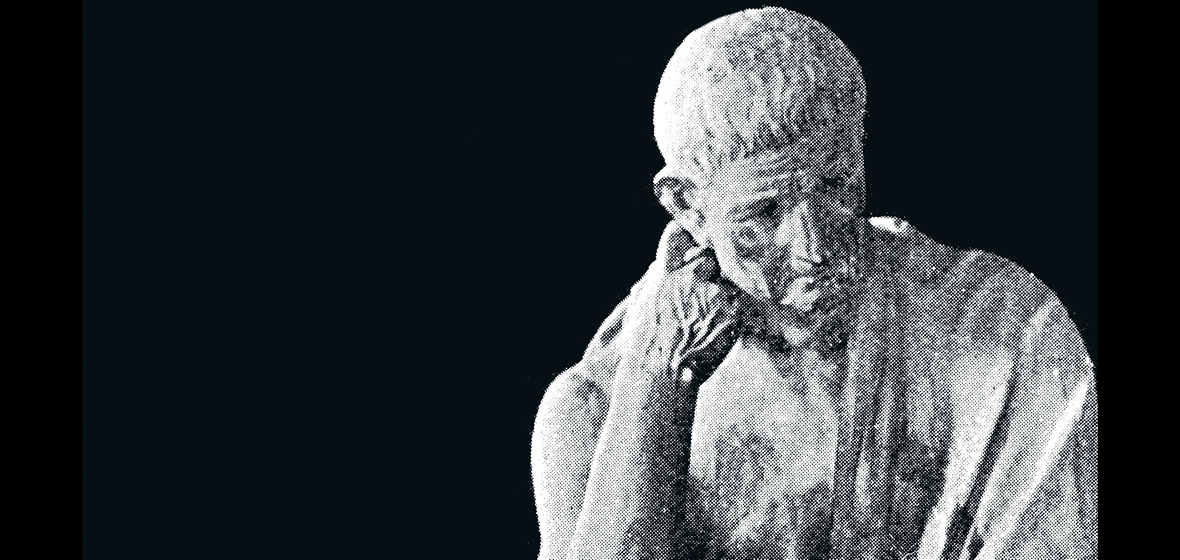THE HONOURABLE CHIEF JUSTICE TOM BATHURST AC reflects on the intersection between law and moral values.
More so than ever before, our society is one which is defined and regulated by law. The demands of a complex and integrated economy and a diverse and multicultural community necessitate a sophisticated and extensive body of rules, administered by a professional corps of lawyers and judges.
These rules control how power may be exercised in our society and serve to prescribe standards of conduct by which we must abide in our everyday lives.
But these rules do not govern our behaviour as if we were automatons. Outside the law, our existence is more than just a legal abstraction. We also live our lives by the moral values which we have learned from our family, friends, and society as a whole.
Our society is also defined and regulated by these values just as much bas it is by the law, but this often passes unnoticed beneath the surface, in the realm of private conscience. Unlike the law, these standards of conduct drawn from conscience are not written but appear from patterns of behaviour we find in society as a whole.
However, these two concepts are not as distinct as they might at first seem. The idea of “conscience” has had a long history in the law. As lawyers, we are most familiar with it as the touchstone for the historical development of equitable principles by the Court of Chancery.
“While this notion of ‘conscience’ has a unique historical connection with the equitable principles developed by the Court of Chancery, it is sometimes used as a metaphor which can be applied to the law more broadly.” His Honour Chief Justice Tom Bathurst

While this notion of “conscience” was based on values influenced by the religious traditions of the early modern period, themselves ultimately traceable to concepts from Greek and Roman philosophy, we now understand the same idea in a more secular sense.
The “conscience” which underlies and animates equitable principles is now interpreted as a reflection of the moral values of our society as a political whole, rather than any one tradition within that society. When courts apply equitable principles to resolve a dispute, we see them as upholding the standards of conduct prescribed by this fictional “conscience”.
For example, if a plaintiff establishes an entitlement to relief in equity, say, for an injunction to restrain a threatened breach of contract, then we express this conclusion by saying that the defendant was “bound on conscience” not to commit the breach. A court will then seek to “relieve” the conscience of the defendant by making an injunction to restrain any threatened breach.
In this way, the court holds the defendant to the standard of a “properly formed and instructed conscience” through the application of equitable remedies. In other words, equitable principles are assumed to represent the dictates and demands of a fictional “conscience”.
While this notion of “conscience” has a unique historical connection with the equitable principles developed by the Court of Chancery, it is sometimes used as a metaphor which can be applied to the law more broadly. If it means nothing more than that a court will hold a person to a certain standard of conduct prescribed by the law, then why could we not see the enforcement of any standard of conduct prescribed by the law in terms of a court holding the defendant to the standard of a “properly formed and instructed conscience”?
I don’t think this is likely to win support from the equity purists in the room, but I think it makes some sense from a purely logical standpoint.
I will take an area of public law as an example. If a plaintiff establishes that they were not given a fair hearing before an administrative tribunal, then we express this conclusion by saying that the plaintiff was not given a hearing in accordance with the standards of “natural justice”, or as it is now more commonly known, “procedural fairness”. A court will then seek to remedy this failure by quashing the decision and remitting the matter to the tribunal to be determined in accordance with law. In other words, the court will hold the tribunal to the standards of “procedural fairness”. We can see the analogy with how a court will hold a defendant to the standard of a “properly formed and instructed conscience” in equity.
Equally, we could take examples from private law. If a plaintiff establishes that they suffered damage as a result of the defendant’s failure to take reasonable precautions against a reasonably foreseeable risk of harm, then we express this conclusion by saying that the defendant breached a duty of care which they owed to the plaintiff.
A court will then seek to remedy this failure by ordering the defendant to pay the plaintiff a sum of money sufficient to put them in the position they would have been in had the failure not occurred.
In other words, the court will hold the defendant to the standard of the “reasonable person”. Again, we can see the analogy with how a court will hold a defendant to the standard of a “properly formed and instructed conscience” in equity.
At first, it is more difficult to see immediately how this analysis applies in the case of contract law. After all, the terms of a contract are specified by the parties rather than by reference to any standard of conduct drawn from the moral values of society.
But this difficulty can be avoided if we recognise that the law is not necessarily concerned with the particular terms which the parties have agreed will govern their relationship.
Rather, the law is concerned to hold each party to perform their agreement, subject, of course, to certain exceptions. It is this concept of “freedom of contract” which reflects the moral values of society and supplies the analogy with the idea of “conscience” equity.
Of course, neither in the context of public or private law is the analogy with equity perfect. There are many points of distinction, and I am certainly not making an argument that these different areas ought to be merged as a matter of law. Instead, I am suggesting that there is underlying similarity between the idea of “conscience” in equity and the equivalent concepts which motivate other areas of law, such as the idea of “procedural fairness” in administrative law and the idea of a “duty of care” in negligence. Each prescribes a standard of conduct drawn from the moral values of our society, and courts are empowered to provide remedies to hold people to that standard.




